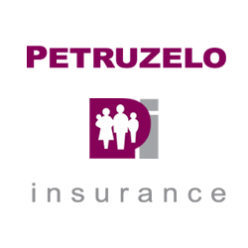
Homeowners insurance can protect you from a financial blow if your house gets damaged or a visitor gets injured. Premiums for homeowners insurance are based on a host of factors.
Location
Insurance companies set rates based on perceived risk. If you live in an area that’s prone to natural disasters, such as hurricanes, tornadoes, or wildfires, you can expect to pay more for homeowners insurance than someone who lives in a less risky area.
Size and Condition
If a large house gets destroyed, the cost to repair or rebuild it will be higher than it would be for a smaller house. It will therefore cost more to insure a larger property.
Your home’s age and condition can also affect your premiums. An older house might have structural damage, outdated electrical wiring, or other issues that make it risky to insure.
Safety and Security Features
Taking measures to keep your home safe reduces the likelihood that you’ll file a claim. Installing deadbolt locks and a security system can make you eligible for lower insurance premiums.
An Attractive Nuisance
A pool, a trampoline, or something else that’s appealing to children, as well as dangerous, is known as an “attractive nuisance.” You can be held liable if an attractive nuisance on your property injures a child, even if the child is trespassing. Your insurance company can charge you higher premiums if you have an attractive nuisance.
Previous Claims
Since insurers set premiums based on how risky it is to insure a property, rates are higher for homes where claims have been filed in the past. That’s true whether you or the previous owner filed claims.
Coverage Limits
Homeowners insurance can cover damage to your house, loss of use, replacement of belongings, and liability. You can select different amounts and types of coverage that suit your needs. Those choices will affect your premiums.
Deductible
The deductible is how much you’ll have to pay yourself before your insurer will pick up the tab for a covered claim. A policy with a higher deductible generally has lower premiums.
Credit Scores
Insurers use insurance-based credit scores to figure out how likely people are to file claims. A high score can translate to lower premiums.
Bundling Policies
Taking out two or more policies from the same company can save you money. The amount that you’ll save will depend on the insurer.
Additional Discounts
Insurance companies offer a variety of money-saving discounts. For example, veterans and people who work for certain companies or who are affiliated with certain organizations can save significant amounts. The list of available discounts varies from one insurer to another.
Get Quotes for Homeowners Insurance
Each company has its own way of evaluating these and other factors when setting rates. That’s why it’s so important to shop around and get quotes from several insurers. Petruzelo Insurance makes it easy to compare rates and find affordable homeowners insurance coverage. Contact us today to learn more.
